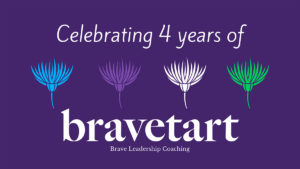If you’re anything like me and have been on the receiving end of accountability misuse, then you might find your inner rebel puts up huge resistance to it. No one likes being blamed when things go wrong and often this means that people resist being held accountable wherever they can. They are in fact missing out on a really great tool. Having overcome my screaming rebel, and learned to be brave, to trust in the process, I’ve discovered how incredibly powerful it really is. Because it helped me so much, I thought I’d share what I’ve learned about accountability in the hope that it will dispel any myths you have about it.
Myth:
Accountability is just another word for having a ready-made scapegoat
Accountability (used correctly) is an effective way of showing confidence and trust in another person. If you make someone accountable for something important to you, then you are telling them that they are important to you and you trust them. If you are giving accountability to a team member, you are also fostering their independence and growth. When you agree to an accountability partnership you are creating a bond of connection that assures the success of both parties. If you have been given accountability by someone else, it can be a privilege to play an important role on the way to their success. Yes, it is also an act of bravery, it requires that you trust in the process but it’s most definitely, in my experience, worth it.
Myth:
You can absolve yourself of accountability by passing it on to others
If you are a leader, whether that’s in your professional or personal life, you are accountable. It’s a fundamental part of the role you play, and it boils down, very simply, to the fact that when things happen the focus will fall to you. If you try to avoid it, you’re likely to experience a disconnect with the people around you and possibly even high levels of distrust. This applies in all areas of life; employees lose faith in a leader who doesn’t model the behaviours they expect themselves; children lose respect when parents don’t take responsibility for themselves; and teams fall apart from lack of trust. If you’ve been a “do as I say, not as I do” leader, then it’s likely you’ll have felt the resentment and experienced a reluctance to engage in the people around you. Demonstrating accountability to the people around you is to say I’m brave enough to manage this, whatever the outcome.
Myth:
It’s something you do from time to time
Well, this myth might be true, if you want to experience mixed results. In every area of your life there will be an ongoing challenge that has the potential to drive you forward. How driven you are to get great results can be directly related to how committed and supported you are along the way. So, if you want consistently great results, then you need to be consistently accountable for the things you do and the promises you make. It’s not much fun doing it all alone and it takes courage to be bold and stand tall as the leader you truly are. Imagine what you could do if you were supported in all of the right places. One of the best ways of doing this is to have accountability champions who have your back and who will keep you on your path regardless of what you are focussing on.
Myth:
I don’t need accountability from others, I manage just fine on my own
Even the most introverted of introverts need connection. We simply will not thrive without it. When we connect and have accountability, we strengthen our resolve to keep going when it gets tough and also have someone to celebrate with when the wins come in. If you are finding the challenges you face are becoming overwhelming, then it makes sense to connect with someone you trust will help you to be brave. The benefits include getting there faster, more efficiently, more empowered to make huge changes, and ultimately, happier.
Myth:
Just telling someone they are accountable is enough
When you make someone responsible for something and expect accountability to happen simply by that virtue, you’re in for a disappointment. Sure, some really driven and competitive people will fall over themselves to demonstrate accountability but that comes from a place that will ultimately fizzle out from lack of appreciation or acknowledgement. Without follow up and process, it’s no more than a token gesture and will inevitably fail to get you the results you want. For accountability to be effective, you need to connect and have regular reviews and updates. It’s important to build trust and connection and for both parties to understand what’s expected. It also requires vulnerability and courage, the kind that will help everyone around you driven to help you fly.
If your plans for the year ahead include some brave challenges that you want to be sure to stay on track with, then seeking out an accountability champion just might be the smartest thing you do this year.
I use accountability as a cornerstone of the work I do. I see my coaching clients achieve great results, often simply because they’ve been kept on track and had the right kind of support to overcome the wobbles they encounter along the way. If you would like to learn more about how accountability can feature in your world, then let’s talk about how I can help you on your journey to success.



